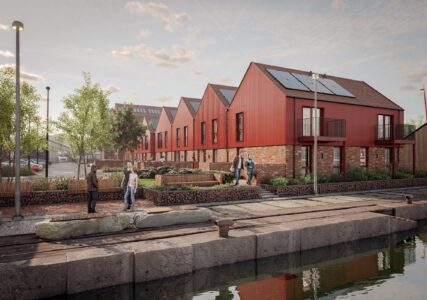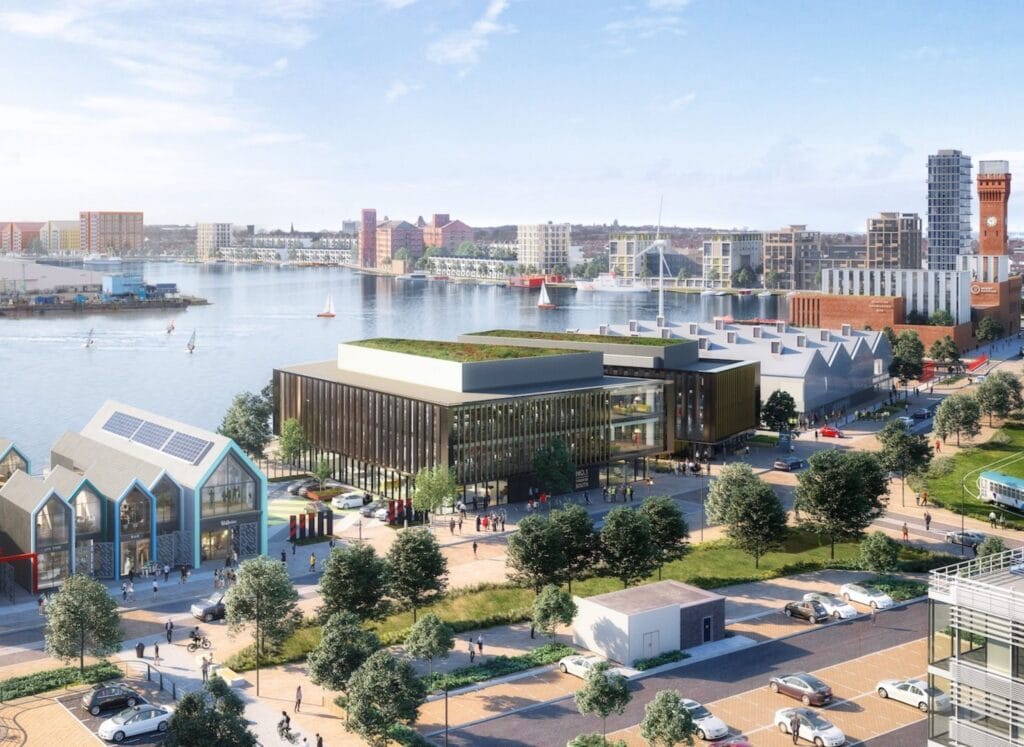Manchester, a city known for its rich industrial history and vibrant cultural scene, is undergoing a remarkable transformation. As the city evolves, its iconic buildings are being revitalised, blending heritage with modernity to create property gems that stand as testaments to its past while embracing the future.
One such example is the iconic Manchester Town Hall, a Grade I listed building located in the heart of the city. Built in the 19th century in the Victorian Gothic style, the Town Hall has long been a symbol of Manchester’s civic pride. In recent years, it has undergone extensive restoration and refurbishment to preserve its historic features while adapting to contemporary needs. Today, it serves not only as a centre of local government but also as a venue for events, weddings, and cultural activities, breathing new life into its grand halls and majestic architecture.
Another landmark undergoing a transformation is the former Granada Studios, once home to the legendary Granada Television. This sprawling complex, with its distinctive red-brick buildings, played a significant role in the history of British television. Since the studios closed in 2013, the site has been redeveloped into a vibrant mixed-use space, featuring luxury apartments, offices, shops, and entertainment venues. Retaining elements of its broadcasting heritage, such as the iconic Coronation Street set, the revitalised Granada Studios complex seamlessly blends old and new, offering residents and visitors alike a glimpse into Manchester’s television history while providing modern amenities and living spaces.
The redevelopment of historic buildings like these is not only preserving Manchester’s architectural heritage but also driving economic growth and urban regeneration. By breathing new life into old structures, developers are tapping into the city’s rich history and cultural identity, attracting investment and tourism while creating desirable places to live, work, and socialise.
Moreover, the transformation of Manchester’s iconic buildings is not just about preserving the past; it’s also about sustainability and innovation. Many redevelopment projects prioritise energy efficiency, incorporating green technologies and sustainable design practices to reduce environmental impact and meet the demands of modern living. From green roofs to solar panels, these initiatives not only make buildings more environmentally friendly but also contribute to the city’s reputation as a forward-thinking and eco-conscious urban centre.
One prime example of this is the redevelopment of the historic Victoria Baths, a Grade II* listed Edwardian swimming pool complex. Closed to the public since 1993, Victoria Baths stood as a poignant reminder of Manchester’s past glory. However, thanks to a concerted community effort and substantial investment, the baths have been partially restored, with plans for further redevelopment underway. The project aims not only to preserve this architectural gem but also to transform it into a thriving community hub, complete with event spaces, cafes, and even a spa. Through adaptive reuse and sustainable development, Victoria Baths is being reimagined for the 21st century, ensuring its legacy lives on for generations to come.
In essence, Manchester’s iconic buildings are more than just structures; they are living monuments to the city’s history, culture, and identity. By transforming these heritage landmarks into modern property gems, Manchester is not only preserving its past but also shaping its future. With careful planning, innovative design, and community engagement, these redevelopment projects are breathing new life into old spaces, enriching the cityscape and creating a legacy that will endure for years to come. Manchester’s ongoing modernisation makes it one of the best cities in the world for investing in property.








